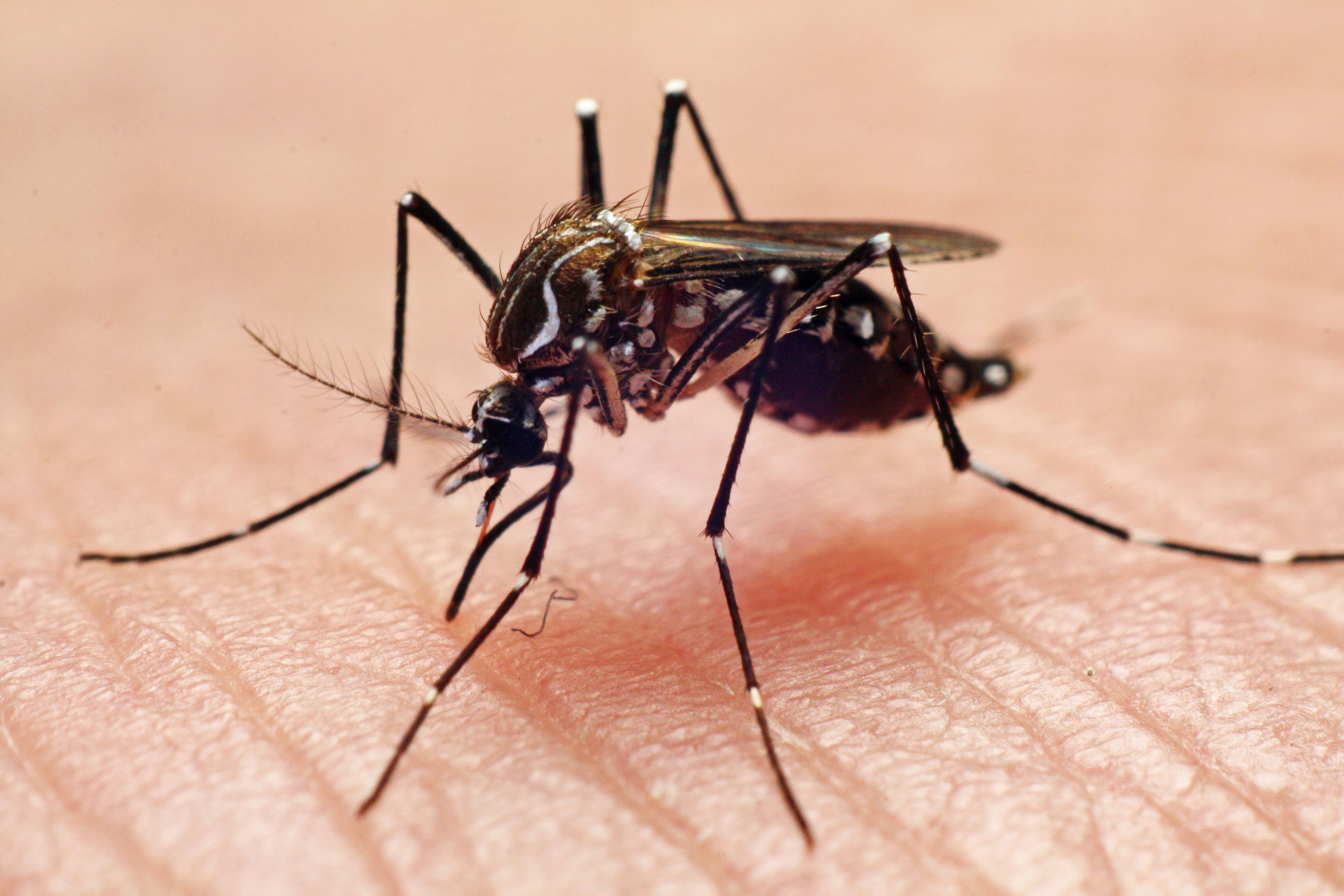How to Take the Sting Out of Tick and Mosquito Bites

If you enjoy spending time outdoors, you have probably encountered tick and mosquito bites at some point. Ticks and mosquitoes are active in spring, summer and fall in Missouri and Illinois, so you will deal with them for months on end. Their bites can be annoying, itchy and sometimes dangerous.
In this article, we will explain how to identify, treat and prevent tick and mosquito bites, and what to do if you develop an infection or one of the known mosquito and tick-borne diseases.
Your primary care doctor can help you with bite identification and treatment options. If you don’t yet have one, use our easy online search to find a provider near you who is taking new patients.
Tick and mosquito bites can look similar, but there are some differences that can help you tell them apart. Here are some clues to look for:
Tick bites are usually painless and may be hard to notice. They may cause a small red bump or a larger red rash, especially if you are allergic to tick saliva.
Some ticks transmit diseases, such as Lyme disease or Rocky Mountain spotted fever. According to the Centers for Disease Control and Prevention (CDC), symptoms may include a bull's-eye rash, fever, headache and joint pain. If you find a tick attached to your skin, remove it carefully with tweezers and save it in a sealed container for identification.
Mosquito bites are usually more noticeable, with immediate red, swollen and itchy bumps on the skin. They may also cause a mild allergic reaction called skeeter syndrome, which can result in larger bumps, blisters, hives or fever.
Mosquito-borne diseases include West Nile virus and Zika virus, which can cause flu-like symptoms, neurological problems or birth defects. If you have been bitten by a mosquito in an area where these diseases are common, watch for any signs of illness and seek medical attention if needed.
Most tick and mosquito bites can be treated at home with simple remedies to ease symptoms. Here are some tips to follow:
Wash the bite area with soap and water to prevent infection.
Apply a cold compress or an ice cube to reduce swelling and itching.
Apply a lotion, cream or paste that contains calamine, antihistamine or corticosteroid to soothe the skin and reduce your urge to scratch the bite.
Take an oral antihistamine, such as cetirizine (Zyrtec) or loratadine (Claritin), to relieve itching and inflammation.
Avoid wearing tight clothing or jewelry that may irritate the bite area.
If you develop an infection or a reaction from a tick or mosquito bite, you may need medical treatment. In mild cases, you can schedule a primary care appointment, BJC Virtual Care on demand visit or visit a BJC Medical Group Convenient Care.
Your primary care doctor or nearest Convenient Care clinic can help you with mosquito and tick bites that are annoying but not life-threatening. However, if you experience symptoms of serious infection, call 911 or get to an emergency room (ER).
Some signs of serious infection include:
Redness, warmth, pus or swelling around the bite area
Fever, chills, headache or body aches
Lymph node enlargement or tenderness
Rash or blisters that spread beyond the bite area
Signs of a serious reaction may include:
Difficulty breathing or swallowing
Chest pain or palpitations
Dizziness or fainting
Nausea or vomiting
Confusion or seizures
If you experience any of these symptoms, seek immediate treatment. You may need antibiotics, antivirals, antiparasitics or other medications to treat an infection or disease. You may also need epinephrine, steroids or other drugs to treat an allergic reaction.
The best way to avoid the complications of tick and mosquito bites and the diseases mosquitoes and ticks carry is to prevent bites in the first place. Here are some protective measures you can take:
Wear long-sleeved shirts, pants, socks and shoes when you go outdoors, especially in wooded or grassy areas where ticks and mosquitoes are common.
Use insect repellents that contain DEET, picaridin, IR3535 or oil of lemon eucalyptus on your skin and clothing. Follow the instructions on the label and reapply as needed.
Avoid peak hours of mosquito activity, such as dawn and dusk, when they are most active.
Remove any standing water around your home where mosquitoes can breed, such as buckets, birdbaths, flowerpots or tires.
Inspect your body and attire for ticks following outdoor activities. Use a mirror or ask someone to help you inspect hard-to-reach areas. If you find a tick, remove it with tweezers as soon as possible and wash the bite area.
Tick and mosquito bites are common in Missouri and Illinois and can cause discomfort and sometimes serious health problems. If you develop a mild reaction or signs of infection from a tick or mosquito bite, BJC can help today with in-person care or a virtual care on demand visit.
-
Visit your nearest BJC Convenient Care clinic for in-person treatment. Schedule an appointment online.
-
Schedule a virtual visit with a BJC provider.
ABOUT PRIMARY CARE
A BJC primary care provider is your partner in health. Your primary care team is here to handle routine health needs and treat illnesses, injuries and chronic conditions. A primary care provider can help you reach your wellness goals. Learn more.
Need primary care?
- Resource